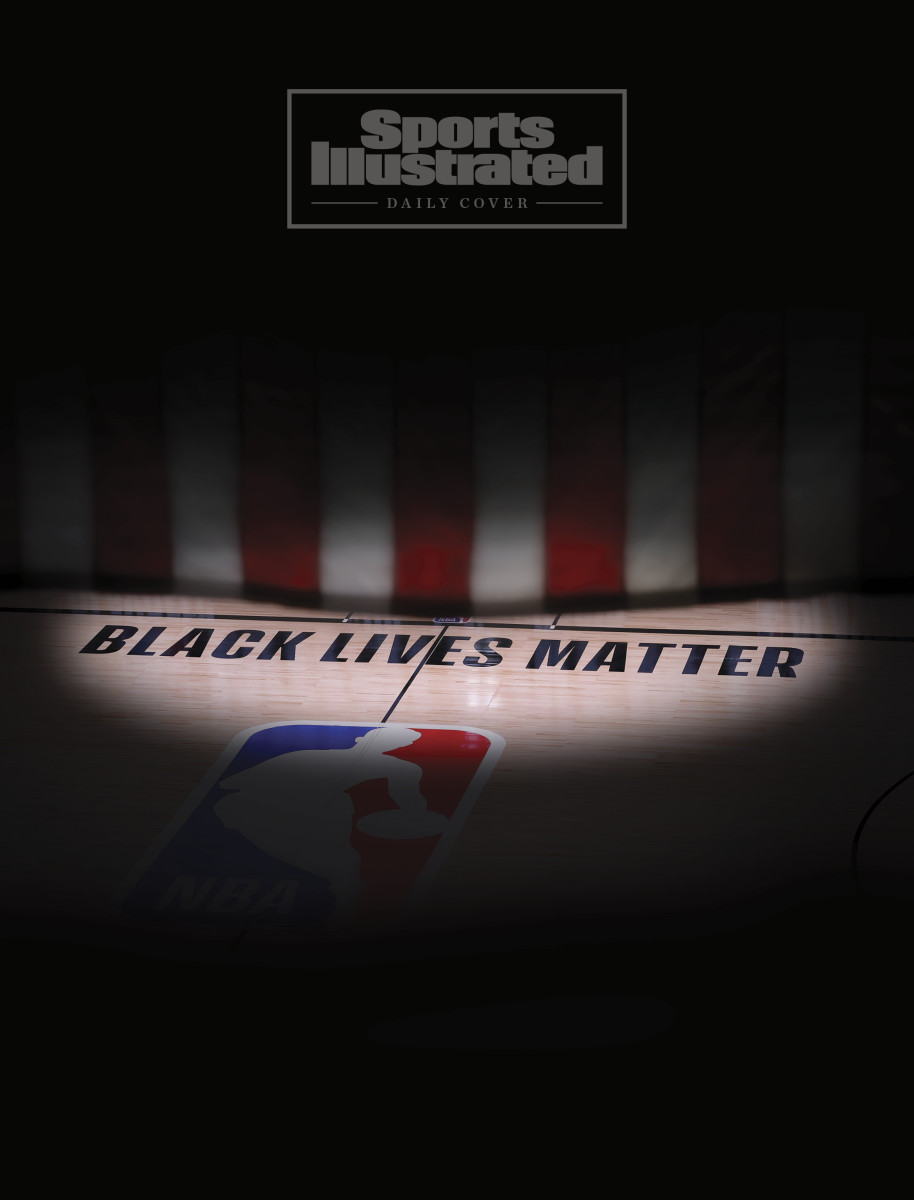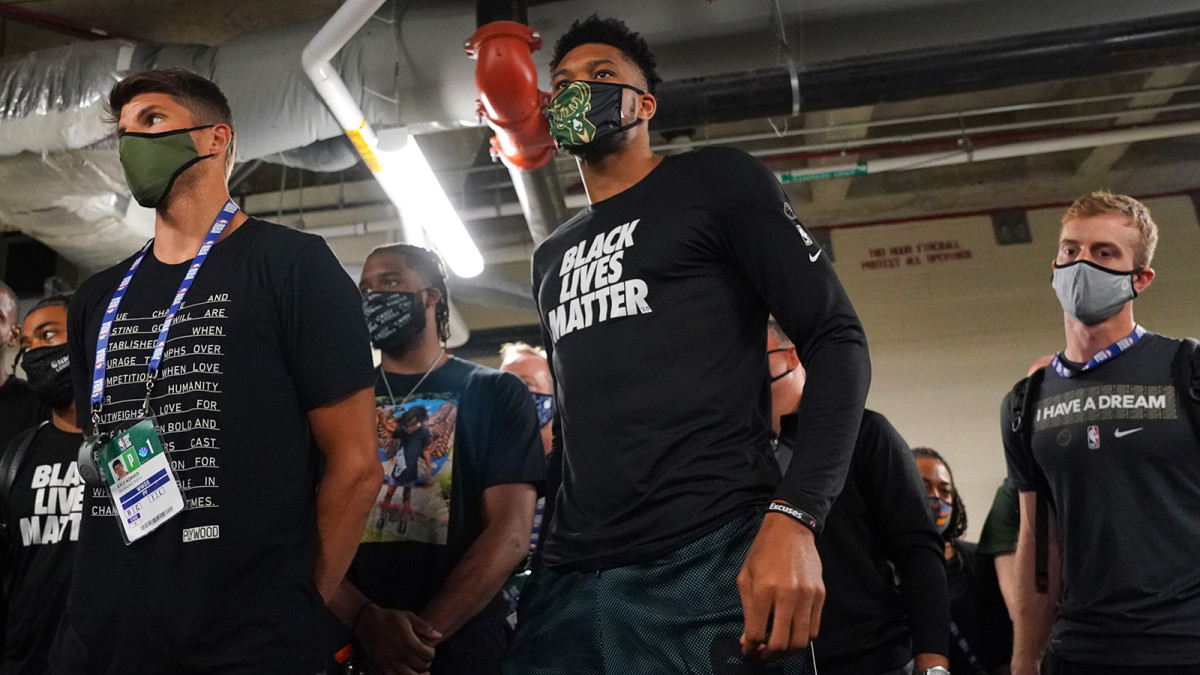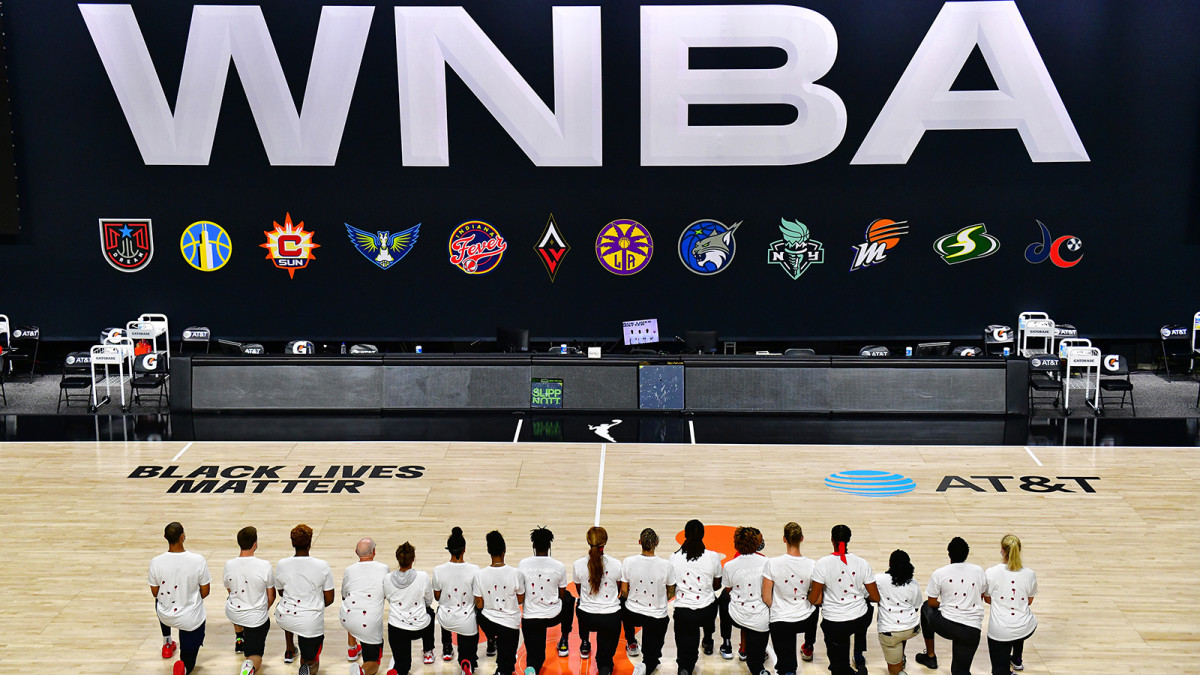The Bucks Burst the NBA Bubble. What Will Happen Next?
Now it’s not during the anthem. Now it’s not near the flag. Now it can’t be twisted as anti-military or anti-American. Now it’s games, their games, first one NBA playoff game, then the rest for the day, and then games in other major pro sports, too. Now the anger over the illogical, senseless shooting of Jacob Blake has reached the point when our finest athletes won’t play.
This is not the end of sports, but if it feels like it, then maybe that’s the point: to imagine a world that is not like the one we knew before.
Two intertwined stories have dominated 2020: One is the pandemic, which has killed 180,000 Americans, and the other is a nation that was forced to pause and look in the mirror, and did not like what it saw. The pandemic forced NBA players to stop their season and go to a bubble in Orlando. America’s image in the mirror is why they stopped playing.

Wednesday’s mass action started with the Bucks, who declined to take the floor for their playoff game against the Magic. Their actions were both stunning and understandable. They’ve seen enough. Even if you strip away anything you believe about race and police and the United States, any thoughtful person should agree: Shooting a man seven times in the back is obscene, it is disgusting, and it should never happen. Police officers are paid—with your tax money, if that is the button that sparks your outrage—to keep people safe. Most Americans also agree: We have seen enough of these videos and heard enough of these stories to know the country has a problem.
So that explains the anger, and the anger explains the walkout. This was a huge statement. But there have been other statements. Most NBA players in the bubble are literally wearing statements printed on their jerseys as they play on a court with a statement printed on it: BLACK LIVES MATTER. Their league has gone to unprecedented lengths to understand and support them. Commissioner Adam Silver sold his owners on the idea that pro basketball would not just distract us from serious issues; it would draw attention to them. So what does not playing basketball do?
It increases the volume, for one. Anybody watching NBA games this month is at least aware of where most players stand. But the NBA bubble is just a larger version of the life most Americans are tired of: There is not much to do except work, follow the news and get mad. Whether the Bucks had a grand plan or not, they knew this: They could strike during an NBA playoff game and the league would support them. There was zero chance that Silver would say, “That’s it: You forfeit.” The Bucks had power, they knew it and they were willing to exercise it.
Athlete activism might have seemed like it peaked this summer. Wednesday showed us it has not.

The Bucks probably did not realize that the NBA would postpone the rest of its games; surely, they did not know that WNBA players and Naomi Osaka and MLS and the Brewers, Reds, Mariners, Padres, Dodgers and Giants would follow their lead. And oddly, that is what the Bucks achieved Wednesday: They caused baseball games to be canceled. That is expanding the movement. That is shining a light where it otherwise would not shine.
For that alone, the day was a success.
What happens next? The question is not just a fair one; it is necessary. It is the question NBA players were asking each other in a meeting Wednesday night, according to Sports Illustrated's Chris Mannix. Raising awareness is only the start. Police brutality and systemic racism are complicated issues, and I am not using the term “complicated” to be evasive; they are complicated in the most fundamental sense of the word, and fixing them is harder than just getting white people to promise to be better.
All over social media, you see people saying, “Arrest the cops who killed Breonna Taylor,” a sentiment that is easy to get behind, but that, too, is more complicated than it seems. What happens after they get arrested? A judge signed a no-knock warrant allowing police to search her residence. Police officers have qualified immunity, which essentially means: If they fear for their lives, they can shoot. Prosecutors would have to convince a jury that the cops knew they were not in danger but shot anyway.
The system gives police officers the freedom to shoot people like Breonna Taylor and Jacob Blake. That is wild. It needs to change.
ESPN reported that the Bucks spoke with Wisconsin’s attorney general and lieutenant governor Wednesday. If NBA players put pressure on team owners to stop supporting racist policies and politicians, that is an excellent use of power as well.

To many white Americans, these are scary, uncertain times. But for many Black Americans, they replace decades of scary and certain times, when the system was unfair and looked like it would stay unfair forever. There is hope now. Those who say America has made progress are right, but miss the point: America has made enough progress that we can see what more progress would look like, and we have reason to believe it can be made.
Four years ago to the day, Colin Kaepernick sat on the San Francisco 49ers’ bench, rather than stand for the national anthem, to protest systemic racism and police brutality. Kaepernick had no idea how big his story would become, and it only became so big because Donald Trump was running a hateful, divisive campaign for president, and he used Kaepernick as an ax to split the electorate. Other athletes had declined to stand for the anthem before. None became a story like Kaepernick did.
Kaepernick handled that gracefully. He did what he felt was right, said what he believed and extended a hand for others to hold when they were ready. First a few other athletes joined him. Now so many have joined the cause, from the NFL to the NBA and WNBA to soccer to NASCAR to tennis to baseball, that almost every game we watch features an athlete who publicly supports Black Lives Matter. We have been watching these athletes forever. Now we have to listen to them.
